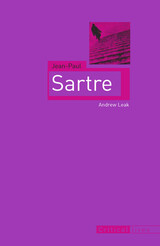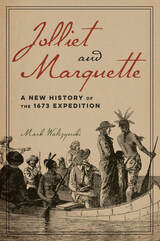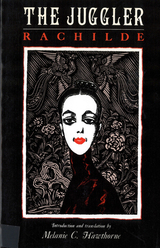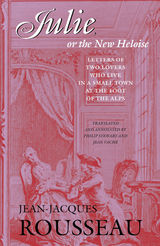9 start with J start with J

Je me souviens invites post-intermediate students of French to improve their language skills while exploring the complex history and culture of Québec.
Drawing on cultural products from the earliest days of exploration to the present day, Elizabeth Blood and J.Vincent H. Morrissette curate an array of texts that sample Québécois literature, popular culture, art, music, and politics and frame the texts with pre-reading and post-reading activities, cultural notes, and historical overview sections. The interdisciplinary approach challenges students to improve their French language skills while learning about Québec. Thematically organized writings delve into issues central to understanding the many facets of contemporary Québécois identity, while prompts direct students to search for a range of materials online. Je me souviens is an essential resource for students interested in understanding the francophone world.

"With Je me souviens, Blood and Morrissette have produced a unique one-semester cultural and literary reader that will acquaint students in French with the history and contemporary issues that have made Québec the complex and fascinatingly vibrant society it is today. Even instructors already familiar with this francophone region will find selections that will engage their students' curiosity and enrich their own understanding." -- Miléna Santoro, vice-president for the Americas and Asia Pacific for the International Association for Québec Studies and associate professor of French and Québec Studies, Georgetown University
"Using an interdisciplinary approach through a variety of texts and documents, Je me souviens provides an excellent overview of Québec from different perspectives. Well organized, thought-provoking, and enriched by a wealth of illustrations, this textbook is unique for its content and will appeal to students from various backgrounds." -- Marie-Christine Weidmann Koop, professor of French, University of North Texas and past president, American Association of Teachers of French

Abandoned, arrested, and repeatedly incarcerated, Genet, who died in 1986, led a life that could best be described as a tour of the underworld of the twentieth century.
Similarly, Genet's work is recognized by its nearly obsessive and often savage treatment of certain recurring themes. Sex, desire, death, oppression, domination-these ideas, central to Genet's artistic project, can be seen as preoccupations that arose directly from the artist's travels, imprisonments, sexual and emotional relationships, and political engagements and protests. This trenchant volume focuses directly on the moments in Genet's life in which those preoccupations are vividly projected in his novels, theater works, and film projects.
Genet's works have been hugely influential for a vast array of writers, filmmakers, choreographers, and directors, especially at moments of social crisis; thus Genet's life is not only at the root of his own work but also that of many important artists of the twentieth century. With its frank and illuminating introduction by Edmund White, Jean Genet gives readers access to this brilliant and brutal mind.

Winner of seven Molières, the Pulitzer Prize of France, Jean-Claude Grumberg is one of France’s leading dramatists and a distinguished voice of modern European Jewry after the Shoah. His success in portraying contemporary Parisian Jews on the stage represents a new development in European theater and a new aesthetic expression of European Jewish experience and sensibility of the Holocaust and its aftermath, a perspective quite different from either the American or the Israeli one. Grumberg’s Jews are French to their fingertips, yet they have been made more consciously Jewish by the war and the difficulties of reintegrating into a society in which too many neighbors denounced them or ignored their pleas to save their children. Affirming the new status of Jewish culture, Grumberg’s plays insist on the recognition of Jewish identity and uniqueness within the majority societies of Europe.
This volume offers the first English translation of three of Grumberg’s prize-winning plays: The Workplace (L’Atelier, 1979), On the Way to the Promised Land (Vers toi Terre promise, 2006) and Mama’s Coming Back, Poor Orphan (Maman revient, pauvre orphelin, 1994). Presented in the order of the history they record and steeped in Grumberg’s personal experience and insights into contemporary Parisian life, these plays serve as documentary witnesses that begin with the immediate postwar reality and continue up to the end of the twentieth century. Seth Wolitz provides notes on the plays’ themes, structures, characters, and settings, along with an introduction that discusses Grumberg’s place within the emergence of French-Jewish drama and a translation of an interview with the playwright himself.


This biographical study integrates Sartre’s works into his personal life, revealing the intimate contexts in which his philosophy developed. From Sartre’s beginnings as a bright and precocious student, Leak explores how he struggled against the repressive strictures of bourgeois expectations, endured cruelty at the hands of schoolmates, and forged his conflicted personality within a fragmented family life. The book probes his particularly influential relationships with a range of people—from Simone de Beauvoir to Gaston Gallimard—and how Sartre was transformed by historical events, in particular his service in World War II.
Telling anecdotes, personal correspondence, and archival photographs expose how Sartre’s own challenges emerged as predominant themes in his works—such as the often blurred delineation between the real and imaginary, and his preoccupation with definitions of “madness” in the individual. Leak’s astute and provocative examination of Sartre himself challenges the philosopher’s assertion about the limits of knowledge of the other.

A multifaceted voyage into the past, Jolliet and Marquette expands and updates the oft-told story of a pivotal event in American history.


READERS
Browse our collection.
PUBLISHERS
See BiblioVault's publisher services.
STUDENT SERVICES
Files for college accessibility offices.
UChicago Accessibility Resources
home | accessibility | search | about | contact us
BiblioVault ® 2001 - 2024
The University of Chicago Press









